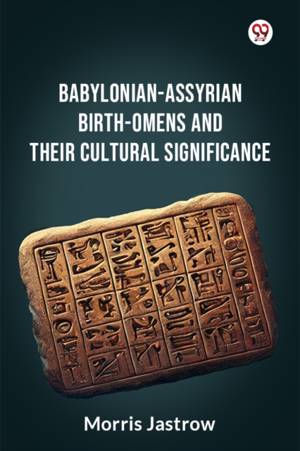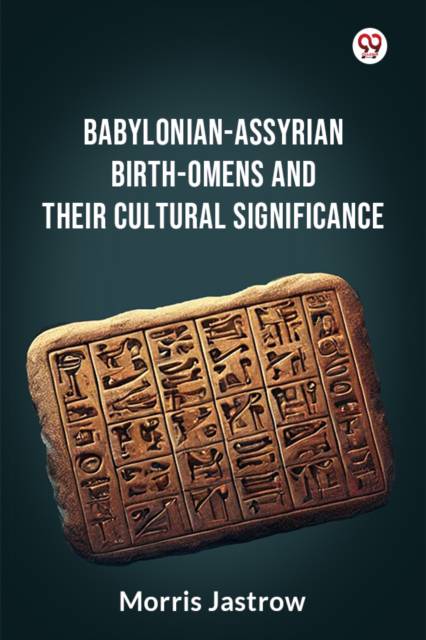
- Afhalen na 1 uur in een winkel met voorraad
- Gratis thuislevering in België vanaf € 30
- Ruim aanbod met 7 miljoen producten
- Afhalen na 1 uur in een winkel met voorraad
- Gratis thuislevering in België vanaf € 30
- Ruim aanbod met 7 miljoen producten
Zoeken
€ 20,95
+ 41 punten
Uitvoering
Omschrijving
Babylonian-Assyrian Birth-Omens And Their Cultural Significance is a scientific work that explores the practices of divination in ancient Babylonian and Assyrian cultures, with a specific focus on interpreting birth omens. The book examines how abnormalities observed at birth, both in humans and animals, were believed to predict future events, linking superstition with early science. The text introduces key methods of divination such as Hepatoscopy and Astrology, emphasizing their connection to birth omens. These practices involved intense scrutiny of malformations, as they were thought to hold ominous implications for future societal events or individual fates. Jastrow explains that the desire to connect unusual occurrences at birth to future outcomes played a significant role in shaping these divination practices. The cultural significance of these practices reflects a complex relationship between belief systems and the human desire to understand life's mysteries. Through his analysis, Jastrow reveals how ancient civilizations used these rituals to make sense of the unknown, demonstrating how superstition and observation intersected in their quest for meaning and control over destiny. This study provides a deep insight into how these practices influenced the societal and personal lives of the Babylonians and Assyrians.
Specificaties
Betrokkenen
- Auteur(s):
- Uitgeverij:
Inhoud
- Aantal bladzijden:
- 106
- Taal:
- Engels
Eigenschappen
- Productcode (EAN):
- 9789369421909
- Verschijningsdatum:
- 2/01/2025
- Uitvoering:
- Paperback
- Formaat:
- Trade paperback (VS)
- Afmetingen:
- 140 mm x 216 mm
- Gewicht:
- 131 g

Alleen bij Standaard Boekhandel
+ 41 punten op je klantenkaart van Standaard Boekhandel
Beoordelingen
We publiceren alleen reviews die voldoen aan de voorwaarden voor reviews. Bekijk onze voorwaarden voor reviews.







